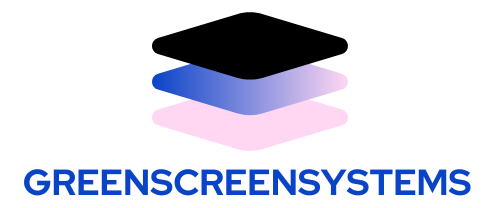Table of Contents
ToggleIn a world where smart fridges can order groceries and washing machines can chat, the consumer electronics and appliances sector is buzzing with opportunities. If you’ve ever wondered how many jobs are available in this electrifying industry, you’re not alone. With technology evolving faster than a toddler can figure out a tablet, it’s no surprise that the job market is sizzling hot.
Overview of the Consumer Electronics/Appliances Industry
The consumer electronics and appliances industry has witnessed significant growth fueled by technological advances. Innovations like smart TVs, home automation systems, and connected kitchen appliances redefine everyday living. Companies invest heavily in research and development, driving creativity and product improvement.
Employment opportunities within this industry continue to expand. Various roles range from design and engineering to sales and marketing. As smart technology becomes mainstream, demand for skilled workers grows. Maintaining an understanding of emerging trends is crucial for potential job seekers.
Work environments in this sector vary. Manufacturers, retailers, and tech startups offer diverse opportunities. Employees engage in collaborative projects, often leading to dynamic workplace cultures. Job roles require adaptability to new software and hardware developments.
Statistics show that the consumer electronics sector employs millions of individuals worldwide. The U.S. Bureau of Labor Statistics reports steady job growth in this field. Areas experiencing the most significant expansion include software development, customer service, and product management.
Evolving consumer habits shape industry norms. Users increasingly seek energy-efficient and sustainable products. Companies prioritize eco-friendly options, resulting in a focus on green technologies. Those pursuing careers in this domain should consider aligning their skills with industry-driven priorities.
Prospects remain bright for individuals looking to enter the consumer electronics and appliances market. Job openings are abundant across various segments. This sector’s future growth hinges on continuous innovation, highlighting the importance of skilled labor.
Current Job Market Trends
Consumer electronics and appliances show a dynamic job market, reflecting ongoing technological advancements. Significant opportunities exist for professionals interested in various roles as the industry continues to evolve.
Demand for Consumer Electronics Professionals
Job openings in consumer electronics flourish due to rising demand for skilled professionals. Engineering, design, sales, and marketing roles attract candidates as companies seek innovative talent to drive growth. Technological innovations foster this demand, compelling firms to look for experts in smart devices and home automation. An emphasis on software development and customer service roles remains prevalent, ensuring robust job prospects for those with relevant experience and skills. Companies that prioritize sustainability and energy efficiency also influence demand, requiring professionals who can align products with eco-conscious consumer preferences.
Growth Projections for the Industry
Projections for the consumer electronics industry suggest continued expansion over the next several years. The U.S. Bureau of Labor Statistics reports steady growth in sectors such as software development, where employment is rising significantly. Market forecasts indicate that smart home technology and connected devices will drive job creation, necessitating a workforce adept at navigating these advancements. With massive investments in research and development, professionals equipped with technical and creative skills will find positions increasingly available. It’s essential for job seekers to stay updated on trends to capitalize on these emerging opportunities.
Types of Jobs Available
The consumer electronics and appliances sector offers diverse job opportunities across various fields. Each role contributes to the industry’s growth driven by technology and innovation.
Technical Positions
Technical positions encompass a range of roles including engineers, product designers, and software developers. These professionals focus on creating and refining devices to meet consumer needs. Engineers develop systems that enhance functionality, while product designers emphasize user experience. Software developers ensure connectivity and smart features function seamlessly. In 2023, the demand for technical professionals continues to soar, showcasing the sector’s commitment to innovation and quality.
Sales and Marketing Roles
Sales and marketing roles play a vital part in driving product visibility and market reach. Specialists in this category develop strategies to promote new devices and appliances. Marketing professionals craft compelling campaigns that resonate with consumers. Sales representatives engage customers directly, guiding them through purchasing decisions. As companies strive to increase market share, skilled sales and marketing personnel are highly sought after, creating numerous job opportunities within the industry.
Support and Customer Service Jobs
Support and customer service jobs are essential for maintaining consumer satisfaction and addressing inquiries. Representatives assist customers with product-related questions and troubleshoot issues. These personnel often gather feedback to improve product offerings and enhance user experience. With the rise of smart appliances, support teams require technical knowledge alongside excellent communication skills. As customer expectations evolve, the demand for proficient support and customer service professionals also grows, driving employment in these roles.
Skills Required for Employment
Job seekers in the consumer electronics and appliances sector must possess a blend of technical and soft skills. These competencies play a crucial role in securing employment and succeeding in this innovative field.
Technical Skills
Technical skills are essential for positions in engineering, product design, and software development. Proficiency in programming languages like Python and Java is highly sought after. Knowledge of design software such as CAD benefits product designers significantly. Familiarity with troubleshooting methods ensures timely resolution of technical issues. Experience with IoT devices and smart technologies is increasingly valuable, due to rising demand for connected appliances. Understanding electronics fundamentals helps in developing efficient and user-friendly products. Employers prioritize candidates with a solid foundation in hardware and software integration, as these skills support innovation in the consumer electronics industry.
Soft Skills
Soft skills enhance collaboration and communication in a fast-paced work environment. Strong problem-solving abilities are necessary for addressing challenges that arise during product development. Adaptability allows professionals to embrace new technologies and processes. Effective communication skills foster better teamwork across diverse departments. Creativity drives innovative thinking, leading to unique product solutions. Additionally, customer-focused attitudes help professionals understand consumer needs and preferences. Employers look for candidates who can balance technical expertise with these essential soft skills, to contribute meaningfully to company growth and consumer satisfaction.
The consumer electronics and appliances sector is poised for significant growth and transformation. With the rise of smart technology and a focus on sustainability, job opportunities are expanding across various roles. This dynamic industry is attracting talent eager to innovate and contribute to the future of technology.
As companies continue to invest in research and development, the demand for skilled professionals will only increase. Job seekers who align their skills with industry trends and consumer preferences will find a wealth of opportunities in this thriving market. The future looks bright for those ready to embrace the challenges and rewards of a career in consumer electronics.




